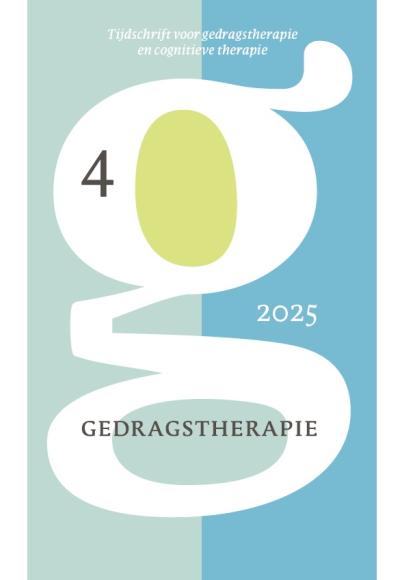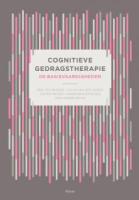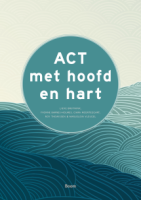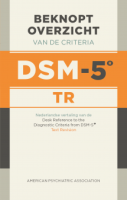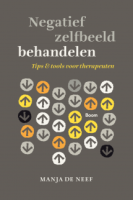Inhoud
Minder moe na kanker door aandachtsgerichte cognitieve therapie
Samenvatting
Ongeveer eenderde van de mensen die succesvol zijn behandeld voor kanker blijven langdurig en ernstig vermoeid. In deze studie is onderzocht of ernstige chronische vermoeidheid na kanker vermindert door aandachtsgerichte cognitieve groepstherapie. Deelnemers werden random toegewezen aan een interventie een wachtlijstcontrolegroep. De analyses zijn gebaseerd op 59 deelnemers in de interventiegroep en 24 in de wachtlijstgroep. De ernst van de vermoeidheid (Checklist Individual Strength), de functiebeperkingen (Sickness Impact Profile) en het welbevinden (Health and Disease Inventory) werden voor en na de negen weken durende interventie bepaald. De interventiegroep had zes maanden na de interventie nog een follow-up meting. Het percentage deelnemers aan de interventie met klinische relevante verbeteringen was bij de nameting 30%, versus 4% bij de wachtlijstgroep (χ² (1) = 6,71; p = 0.007). De gemiddelde vermoeidheidsscore bij de nameting was significant lager bij de interventiegroep dan bij de wachtlijstcontrolegroep gecorrigeerd voor het vermoeidheidsniveau voor de behandeling. Welbevinden was significant hoger bij de nameting in de interventiegroep dan in de wachtlijstgroep gecorrigeerd voor niveau van welbevinden voor de behandeling. Het effect van de behandeling bleef bestaan bij de follow-up meting na zes maanden. Er werden tussen de twee groepen geen verschillen gevonden wat betreft functiebeperkingen. Aandachtsgerichte cognitieve therapie lijkt een effectieve behandeling voor chronische vermoeidheid na kanker.
Literatuur
- Bergner M, Bobbitt, R.A., Carter, W.B., et al. (1981). The Sickness Impact Profile: Development and Final Revision of a Health Status Measure. Med Care, 19, 787-805.
- Beurskens, A.J., & Bultmann, U., Kant I, et al. (2000). Fatigue Among Working People: Validity of a Questionnaire Measure. Occup Environ Med, 57 , 353-357.
- Bruin, E.J. de, Dijk, M. van, & Duivenvoorden, H.J. (1996). Assessing Adjustment to Cancer: the Health and Disease Inventories (HDI). Swets & Zeitlinger: Lisse.
- Carlson, L.E., & Garland, S.N. (2005). Impact of Mindfulness-Based Stress Reduction (MBSR) on Sleep, Mood, Stress and Fatigue Symptoms in Cancer Outpatients. Int J Behavioral Medicine, 12, 278-285.
- Cella, D., Davis, K., Breitbart, W., et al. (2001). Cancer-Related Fatigue: Prevalence of Proposed Diagnostic Criteria in a United States Sample of Cancer Survivors. J Clin Oncol, 19, 3385-3391.
- Curt, G.A., Breitbart, W., Cella, D.F., et al (1999). Economic Impact of Cancer-Related Fatigue on Patients (Pts) and Their Caregivers. Psycho-Oncology , 21, 8.
- De Bruin, A.F., Witte, L.P., Stevens, F., et al. (1992). Sickness Impact Profile: the State of the Art of a Generic Functional Status Measure. Soc Sci Med, 35, 1003-1014.
- De Jong, N., Courtens, A.M., AbuSaad, H.H., et al. (2002). Fatigue in Patients With Breast Cancer Receiving Adjuvant Chemotherapy: A Review of the Literature. Cancer Nurs, 25, 283-297.
- Espie, C.A., Fleming, L., Cassidy, J., et al. (2008). Randomized Controlled Clinical Effectiveness Trial of Cognitive Behavior Therapy Compared With Treatment As Usual for Persistent Insomnia in Patients With Cancer. J Clin Oncol, 26, 4651-4658.
- Gielissen, M.F.M., Verhagen, S., Witjes, F., et al. (2006). Effects of Cognitive Behaviour Therapy in Severely Fatigued Disease-Free Cancer Patients Compared With Patients Waiting for Cognitive Behaviour Therapy: A Randomized Controlled Trial. J Clin Oncol , 24, 4882-4887.
- Gielissen, M.F. (2008). Fatigue in cancer survivors; from assessment to cognitive behaviour therapy. Dissertation, Ponsen en Looyen: Wageningen.
- Goldstein, D., Bennett, B., Friedlander, M., Davenport, T., Hickie, I., & Lloyd, A. (2006). Fatigue states after cancer treatment occur both in association with, and independent of, mood disorder: a longitudinal study. BMC.Cancer, 6, 240.
- Haghighat, S., Akbari, M.E., Holakouei K, et al. (2003). Factors Predicting Fatigue in Breast Cancer Patients. Support Care Cancer, 11, 533-538.
- Herrmann, C. (1997). International Experiences With the Hospital Anxiety and Depression Scale--a Review of Validation Data and Clinical Results. J Psychosom Res, 42, 17-41.
- Jacobs, H.M., Luttik, A., Touw-Otten F.W., et al. (1990). [The Sickness Impact Profile; Results of an Evaluation Study of the Dutch Version]. Ned Tijdschr Geneeskd, 134, 1950-1954.
- Jacobsen, P.B., Donovan, K.A., Vadaparampil S.T., et al. (2007). Systematic Review and Meta-Analysis of Psychological and Activity-Based Interventions for Cancer-Related Fatigue. Health Psychol , 26, 660-667.
- Jacobson, N.S., & Truax, P. (1991). Clinical Significance: a Statistical Approach to Defining Meaningful Change in Psychotherapy Research. J Consult Clin Psychol, 59, 12-19.
- Kabat-Zinn, J., Lipworth, L., & Burney, R. (1985). The Clinical Use of Mindfulness Mediation for the Self-Regulation of Chronic Pain. J Behav Med, 8, 163-189.
- Kangas, M., Bovbjerg, D.H., & Montgomery, G.H. (2008). Cancer-Related Fatigue: a Systematic and Meta-Analytic Review of Non-Pharmacological Therapies for Cancer Patients. Psychol Bull, 134, 700-741.
- Le Fevre, P., Devereux, J., Smith, S., et al. (1999). Screening for Psychiatric Illness in the Palliative Care Inpatient Setting: a Comparison Between the Hospital Anxiety and Depression Scale and the General Health Questionnaire-12. Palliat Med, 13, 399-407.
- Ledesma, D., & Kumano, H. (2009). Mindfulness-based stress reduction and cancer: a meta-analysis. Psychooncology., 18, 571-579.
- Magnusson, K., Moller, A., Ekman, T., & Wallgren, A. (1999). A Qualitative Study to Explore the Experience of Fatigue in Cancer Patients. Eur J of Cancer Care, 8, 224-232.
- Mulder-Hajonides van der Meulen, W., Wijnberg J, Hollander J, et al. (1980). Measurement of Subjective Sleep Quality. European Sleep Research Society , 5, 98.
- Prue, G., Rankin, J., Allen, J., et al. (2006). Cancer-Related Fatigue: A Critical Appraisal. Eur J Cancer, 42, 846-63.
- Savard, J., & Morin, C.M. (2001). Insomnia in the context of cancer: a review of a neglected problem. J Clin Oncol, 19, 895-908.
- Segal, Z.V., Williams, M.G., & Teasdale, J.D. (2001). Mindfulness-Based Cognitive Therapy for Depression: A New Approach to Preventing Relapse. The Guilford Press: New York.
- Servaes, P., Prins, J., Verhagen, S., et al. (2002). Fatigue After Breast Cancer and in Chronic Fatigue Syndrome: Similarities and Differences. J Psychosom Res, 52, 453-9.
- Servaes, P., Verhagen, S., & Bleijenberg, G. (2002). Determinants of Chronic Fatigue in Disease-Free Breast Cancer Patients: a Cross-Sectional Study. Ann Oncol , 13, 589-98.
- Smets, E.M., Garssen, B., Schuster-Uitterhoeve, A.L., & Haes, J.C. de (1993). Fatigue in cancer patients. Br J Cancer, 68, 220-224.
- Spelten, E.R., Verbeek, J.H.A.M., Uitterhoeve, A.L.J., Ansink, A.C., Lelie, J. van de, Reijke, T.M. de, et al. (2003). Cancer, fatigue and the return of patients to work - a prospective cohort study. European Journal of cancer, 39, 1562-1567.
- Sugawara, Y., Akechi, T., Okuyama T, et al. (2005). Occurrence of Fatigue and Associated Factors in Disease-Free Breast Cancer Patients Without Depression. Support Care Cancer,13, 628-636.
- Teasdale, J.D., Segal Z.V., Williams, J.M., et al. (2000). Prevention of Relapse/Recurrence in Major Depression by Mindfulness-Based Cognitive Therapy. J Consult Clin Psychol,68, 615-623.
- Van Doornen, L.J.P. (2012) Psychologie en fysiologie: een LAT relatie, rede uitgesproken ter gelegenheid van zijn afscheid als hoogleraar.
- Vercoulen, J.H.M.M., Alberts, M., & Bleijenberg, G. (1999). De Checklist Individual Strength (CIS). Gedragstherapie, 32, 131-136.
- Vercoulen, J.H.M.M., Swanink, C.M.A., Fennis, J.F.M., et al. (1994). Dimensional Assessment of Chronic Fatigue Syndrome. J Psychosom Res, 38, 383-392.
- Vogelzang, N.J., Breitbart, W., Cella, D., et al. (1997). Patient, Caregiver and Oncologist Perceptions of Cancer-Related Fatigue: Results of a Tripart Assessment Survey. Seminars in Hematology, 34, 4-12.
- Young, K.E., & White, C.A. (2006). The Prevalence and Moderators of Fatigue in People Who Have Been Successfully Treated for Cancer. J Psychosom Res, 60, 29-38.
 © 2009-2026 Uitgeverij Boom Amsterdam
© 2009-2026 Uitgeverij Boom Amsterdam
De artikelen uit de (online)tijdschriften van Uitgeverij Boom zijn auteursrechtelijk beschermd. U kunt er natuurlijk uit citeren (voorzien van een bronvermelding) maar voor reproductie in welke vorm dan ook moet toestemming aan de uitgever worden gevraagd:
Behoudens de in of krachtens de Auteurswet van 1912 gestelde uitzonderingen mag niets uit deze uitgave worden verveelvoudigd, opgeslagen in een geautomatiseerd gegevensbestand, of openbaar gemaakt, in enige vorm of op enige wijze, hetzij elektronisch, mechanisch door fotokopieën, opnamen of enig andere manier, zonder voorafgaande schriftelijke toestemming van de uitgever.
Voor zover het maken van kopieën uit deze uitgave is toegestaan op grond van artikelen 16h t/m 16m Auteurswet 1912 jo. Besluit van 27 november 2002, Stb 575, dient men de daarvoor wettelijk verschuldigde vergoeding te voldoen aan de Stichting Reprorecht te Hoofddorp (postbus 3060, 2130 KB, www.reprorecht.nl) of contact op te nemen met de uitgever voor het treffen van een rechtstreekse regeling in de zin van art. 16l, vijfde lid, Auteurswet 1912.
Voor het overnemen van gedeelte(n) uit deze uitgave in bloemlezingen, readers en andere compilatiewerken (artikel 16, Auteurswet 1912) kan men zich wenden tot de Stichting PRO (Stichting Publicatie- en Reproductierechten, postbus 3060, 2130 KB Hoofddorp, www.cedar.nl/pro).
No part of this book may be reproduced in any way whatsoever without the written permission of the publisher.
Inloggen VGCt en VVGT
Leden van de VGCt en de VVGT loggen in via de site van hun vereniging. Als u op die site bent ingelogd als lid, vindt u daar een button naar het Tijdschrift voor Gedragstherapie.
English
Behavioral Therapy: Journal for Behavioral Therapy and Cognitive Therapy ISSN 0167-7454
Information in English can be found here.



